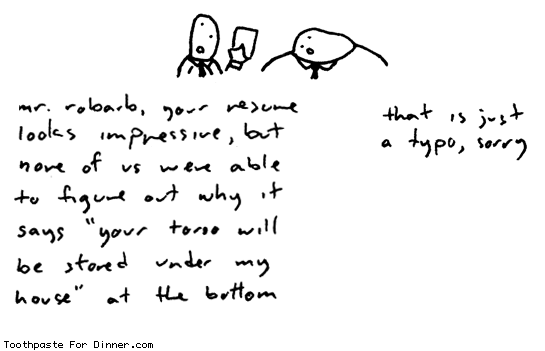
"Just a typo"
From wikipedia:
"Op. cit. (Latin, short for "opus citatum"/"opere citato," meaning "the work cited/from the cited work") is the term used to provide an endnote or footnote citation to refer the reader to an earlier citation. To find the Op. cit. source, one has to look at the previous footnotes to find the relevant author.
In legal citation, the phrase refers to the cited source immediately previous to the last cited source.
Contrast: Ibid, referring to the last cited source, and supra, meaning cited (with details of the source) above. Also loc. cit. ("in the place cited"), now rarely used.
[edit] Example
* 9. R. Millan, "Art of Latin grammar" (Academic, New York, 1997), p. 23.
* 10. G. Wiki, "Language and its uses" (Blah Ltd., Old York, 2000), p. 17.
* 11. Millan, op. cit., p. 5.
The reference no. 11 is the same as in no 9. (R. Millan, "Art of Latin grammar"), although the page is different."
Not only do I have to flip to the endnotes, which frustratingly are listed at the end of the BOOK and not of the chapter, I now have to read through every footnote to find out where J. Spears was first mentioned, in notes which are each five to fifteen lines long and usually include six sources apiece. You, editor of this book, wherever you are, may you be doomed to a hell of small print, circular citations, and ambiguous references. And typos, just because I hate you.



No comments:
Post a Comment